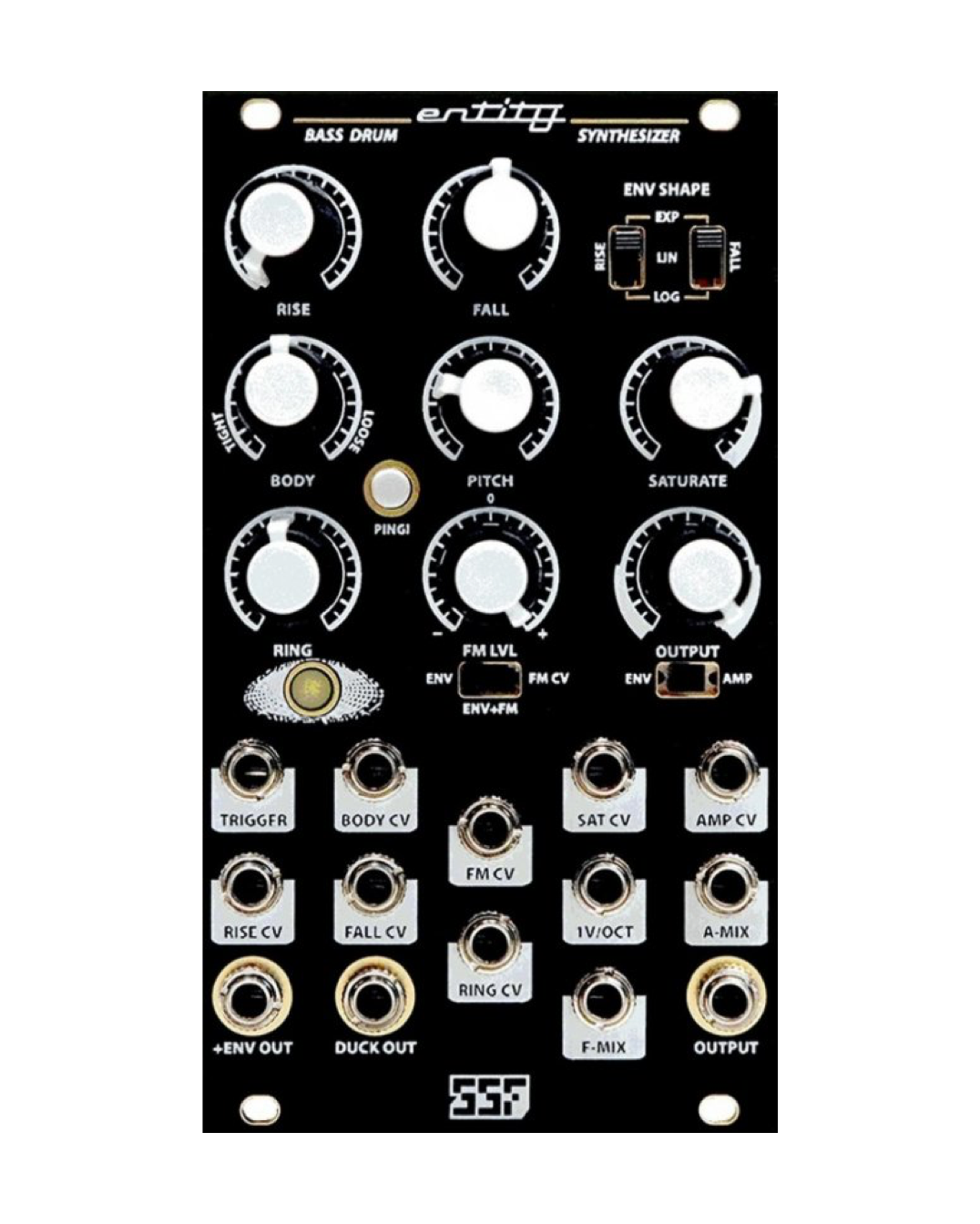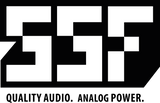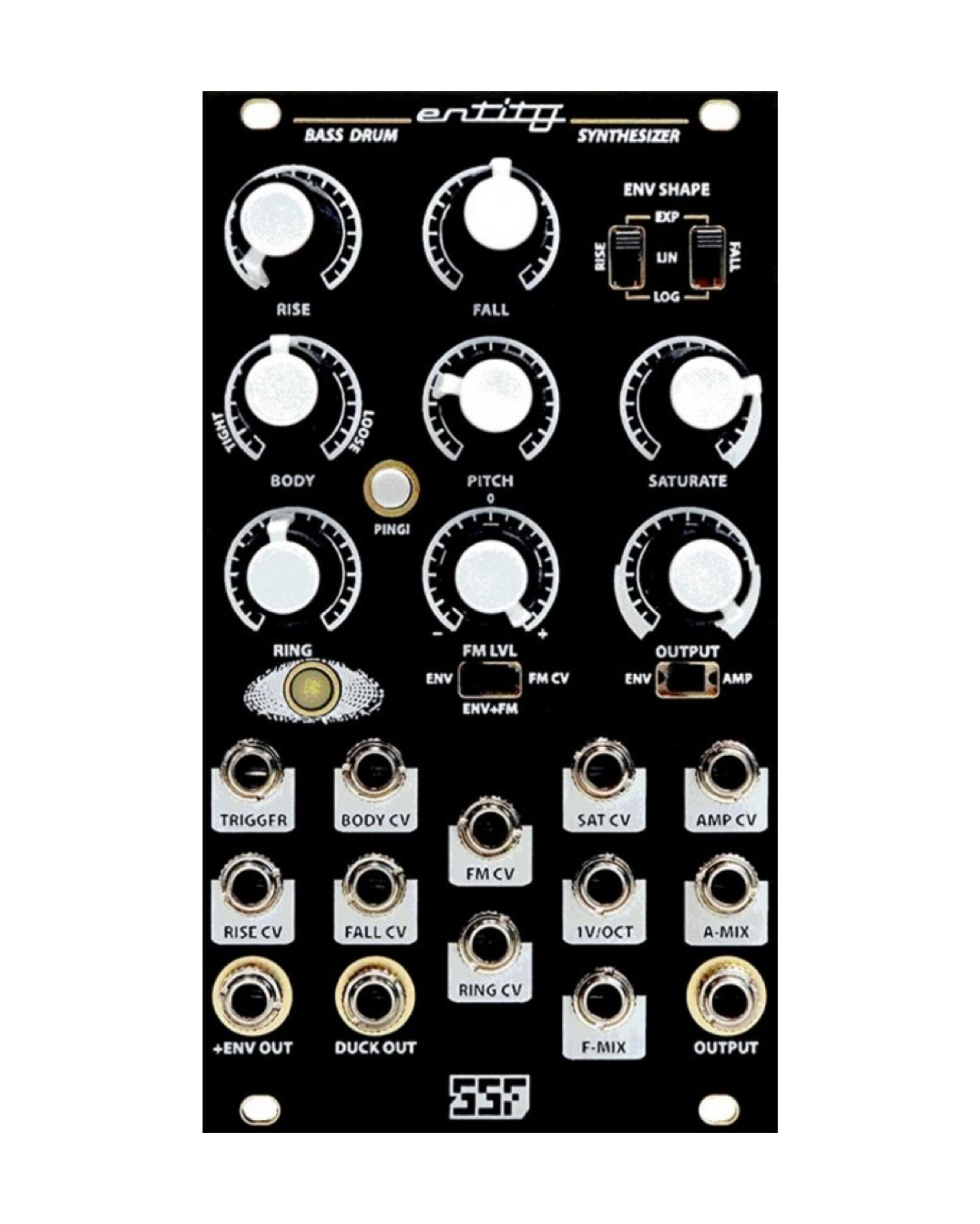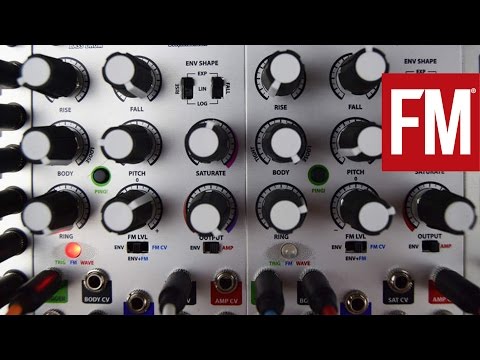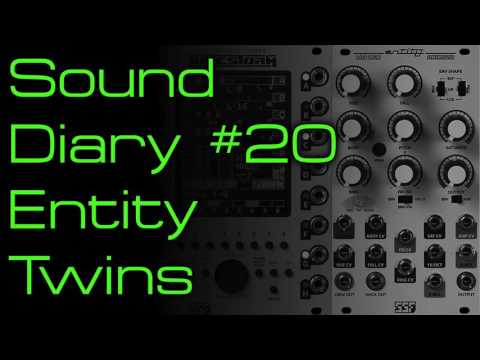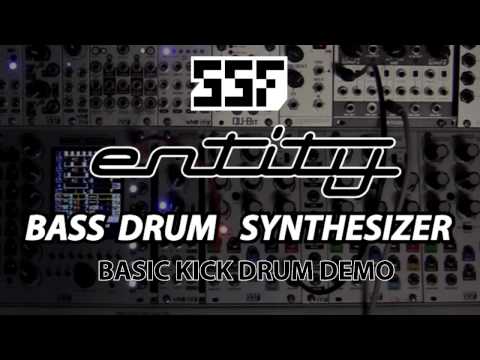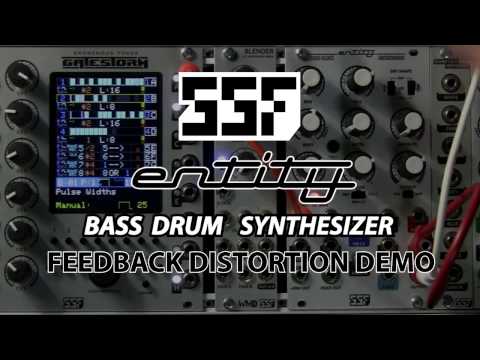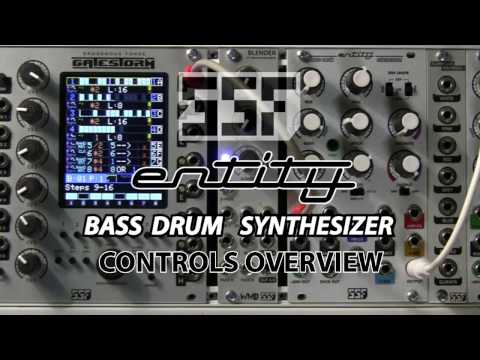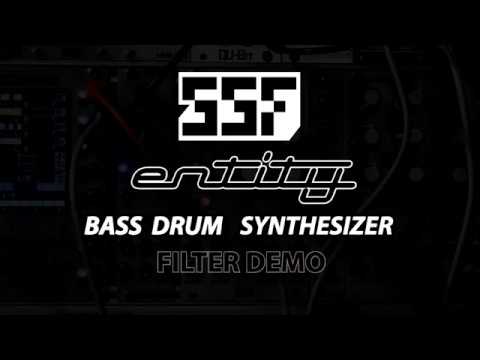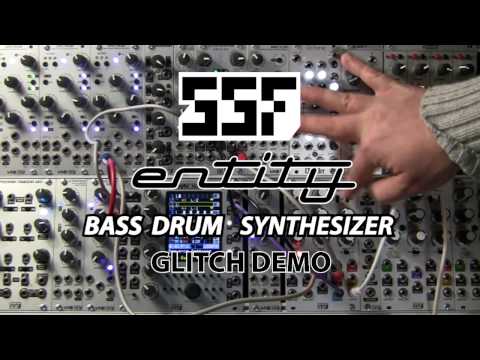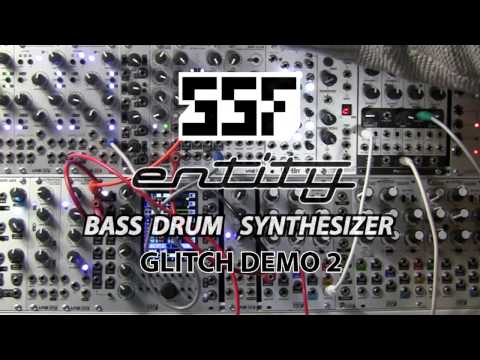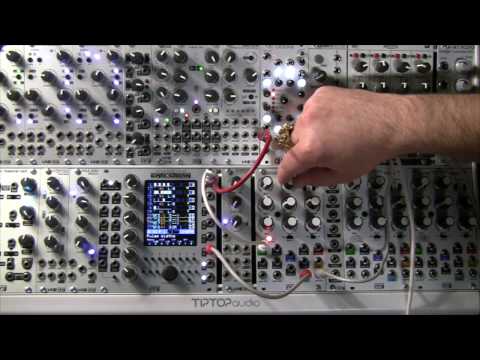Steady State Fate
Entity Bass Drum Synthesizer
Entity Bass Drum Synthesizer
The Entity Bass Drum is a complete and versatile synthesizer voice geared for designing a huge array of bass drum, percussive and synth sounds. Finally, a truly deep tool for creating analog bass drum, bass lines and other percussive effects is here!
The design consists of a high fidelity resonant filter, 2 stage slope generator (rise/fall) with independent slope shaping, a high fidelity VCA and discrete transistor saturation circuitry. Every parameter on the Entity Bass drum is voltage controllable.
By applying a trigger of any length and at least 2V amplitude, we excite the resonant filter to produce a percussive sine wave. The pitch control tunes the output with a range of 8Hz to around 2.2KHz. Both higher and lower levels are achievable using the FM input for modulation etc. The internal filter will track 3-4 octaves reliably and the tracking device is temperature compensated.
Very high fidelity design - no generic op amps used in signal path. Only discrete components and audiophile grade op amps. Signal path is completely isolated from euro power rails. Very low nominal noise. High headroom using hotter signal levels and will cut through any mix.
The slope generator (ENV) can be switched into the circuit via the 3 way switch below the FM LVL control. This control is a bipolar attenuator which affects the level of the slope generator and/or external modulator that affects the pitch of the output.
The 3 way switch selects FM, FM+ENV or just ENV as a mod source.
The rise/fall envelope is a two stage function generator. The controls provide slope timing from 1ms to about a minute. To the right of these controls is the shaping section where logarithmic, linear and exponential slope shapes are selected independently for the two envelope stages.
The envelope is designed to re-trigger at a set point. This allows for changing dynamics to occur to pitch and amplitude when the slope times are greater than the output transient time. For instance the sound can vary between any number of triggers that fire before the envelope set point is reached. Setting the slope time fast enough (below roughly 1 o'clock) provides for nominal operation. Settings will vary depending on trigger and ring decay timing.
The envelope can also be used exclusively or in a more complex patch via a direct +ENV output. Additionally, a novel DUCK output provides a means to control external VCAs - to work like slow compressors. DUCK is an inverted and positively offset version of the +ENV out. This keeps VCAs open when the envelope is off and effectively 'ducks' the VCA when the envelope fires. Of course, mod sources for these outputs are not limited to VCAs...
BODY is a subtle, yet novel control. This control simulates the tightness of a drum head. All the way tight, we get a softer and somewhat muted sound, to the right we achieve a more flabby sound. The middle region is the sweet spot for a nearly perfect resonant drum. BODY can have a greater effect depending on the other parameters and can be very useful for fine tuning the sound in a mix and designing original drum sounds.
RING controls the resonant decay time. Both short and plucky and an infinite ring are obtainable. The filter is tuned so that it will always resonate a little, even when RING control is all the way down.
Before the output section, we have the discrete transistor saturation. We like this because of the vintage low end distortion from overdriven class-A discrete amplifiers. This one is tuned a bit more aggressively and just a touch is necessary to add some bite. However, you can go over the top and get brutal if you so desire... ;-)
The saturator will overdrive the output stage for more of a hard clipping effect that can be tuned out by adjusting the output level control without sacrificing signal amplitude - its a hot signal by intention.
The OUTPUT section is a parallel signal processor design. The OUTPUT control blends the nominal output with a secondary input (or nothing) depending on the 2 way switch setting below the control and/or whether an external signal is patched into the AMP CV input. In 'AMP' mode, the OUTPUT control works like a volume control. If a signal is active on the AMP CV input, the control will blend between the nominal output and the CV control level. Similarly, in 'ENV' mode we get the same blending action using the internal envelope.
The result is a sort of parallel compression effect as the output and CV sources are blended together - or totally independent at the extremes.
By providing amplitude shaping as well as pitch, resonant decay, body etc. even more sound shaping possibilities are available.
The VCA can also be accessed directly via the A-MIX input. This allows you to use the output section as a standalone VCA (modulated via the envelope or not) or to mix other sounds with the Entity. Feedback patching is a possibility using a stackable or mult to feed the output into the A-MIX input. This produces a juicy distortion effect of a different flavor, you may like it.
The filter can be used independently or in combination with the nominal output via the F-MIX input. This input is used as an aux trigger input that is sensitive to pulse/trigger width. As the effect is less dramatic than the main trigger, dynamic rhythms are achievable using both inputs and creative triggering.
As an acid style processor, patch a VCO input the F-MIX input and use the controls to modulate and accent the signal for some convincing 303 style acid bass lines and beyond.
Additional features:
PING! button to demo sounds without a trigger source.
RGB LED for visual feedback of trigger, FM and output waveform
All parameters are CV controllable. Controls double as CV attenuators.
Specs
Specs
Width: 14hp
Depth: 16mm
Current: 61 mA +12V 91 mA -12V 0 mA 5V
ModularGrid
ModularGrid
MSRP
MSRP
